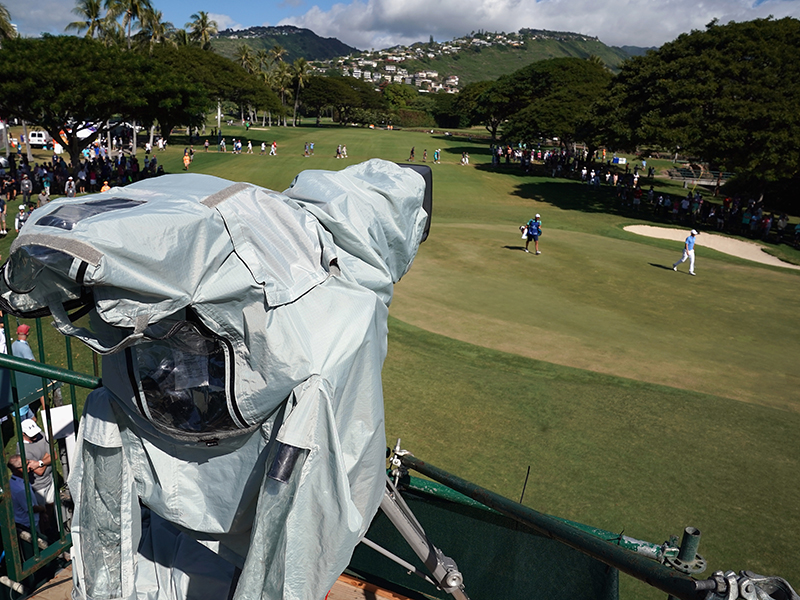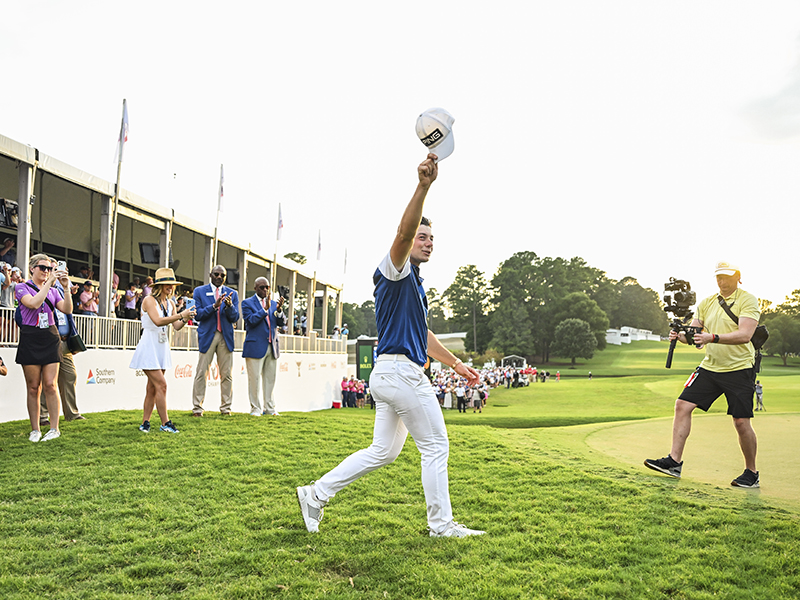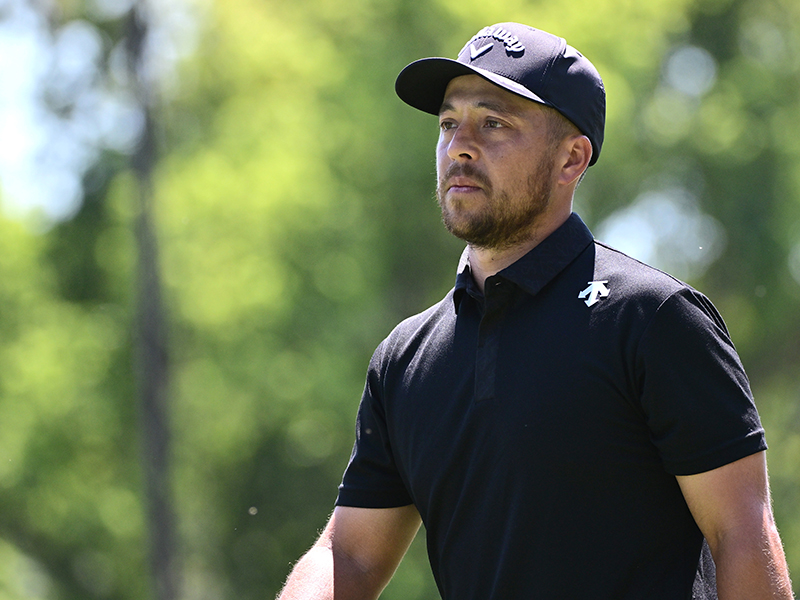
The debate around the televised coverage of live golf is one that has been a hot topic in recent years, with some feeling as though the product sometimes falls short of what golf fans really want.
For me, watching golf is most enjoyable when you can sit back and immerse yourself without the constant interruption of various, often avoidable, interferences. After growing disillusioned with my regular viewing experience in recent weeks, I decided to do a little bit of research.
With a stopwatch in hand, I tuned in to 60 minutes of PGA Tour main coverage from the Valspar Championship, and timed how much of that was actually spent showing golfers hitting shots. The results shocked me...
How Many Minutes Are Actually Spent Showing Golf Shots During PGA Tour Coverage?
First, it's important to state the parameters I used to define a 'golf shot'. I started the timer when a player addressed the golf ball, following their practice swings and caddie discussions. I then stopped the timer when the golf ball came to rest, or went in the hole, and continued this approach for the full 60-minute experiment.
Across the full 60-minute period, the amount of time spent showing what I have defined as 'golf shots' was just 13 minutes and 58 seconds – less than 25% of the coverage.

Over the course of the hour, plenty of time was spent showing some of the admittedly important contextual footage of players strategically discussing and ultimately deciding on their next move, or reading putts on the putting green.
In the interest of balance, I do actually believe this forms an important and integral part of televised golf, as it provides a window into the skill and planning that goes into being an elite golfer.
Clearly, nobody wants to watch an endless carousel of shots that feels like you are on fast-forward, with an almost motion-sickness-inducing waltzer effect in an attempt to cram in as much golf as possible.
Instead, balance should be the focus here, with a better harmony between what I would call 'the contextual stuff' and the shots being shown. For some who only have a short period of time to watch the golf, tuning in for the odd hour here or there, they want to get their fix and would likely feel disappointed by almost 75% of their time being squandered.

Let me give you an example of the imbalance that frustrates me. I watched Xander Schauffele contemplating an unplayable lie after an errant tee shot, followed subsequently by him taking said unplayable lie and proceeding to then hit the golf ball. This went on, interspersed with very few fleeting opportunities to see other golfers on the course, for what felt like an age.
This is an example where the weighting of the scales felt off, and while the jeopardy of seeing a top professional strategising from a troubling position is unquestionably necessary, the extensive focus on this felt slow and detracted from the overall viewer experience.
Perhaps instead, give us 30 seconds of his decision making process, followed by some of the great shots being played by other golfers on the course, and return with some useful commentary to explain the lead up to him taking his shot while he is ready and over the ball.

In addition to the first data set, I also timed how much of the 60 minute window was spent showing the shots plus any other 'contextual' footage of golfers on the course. This totalled to 42 minutes and 17 seconds, meaning almost 18 minutes were lost for things like adverts, aerial golf course shots and on-screen graphics.
The role of commercials are inevitable from a financial perspective, but the regularity of intrusion by 'filler' content feels out of kilter.
One example of this would be the return from an ad break, followed by two golf shots being shown, and the swift introduction of a leaderboard showing something like the current top-ranked amateur golfers in the PGA Tour University standings.
If I was interested in this information, I could easily search for it on the internet, but when I am here to watch the golf... I just want to see quality players doing their thing.
What Are The Potential Solutions?
Don't get me wrong, the people in charge appear to be trying to make the viewing experience better. Consumers now have the option to watch bonus content, like featured group coverage or signature holes, but are they still missing a trick?
A few weeks ago, I tuned into the Mexico Open at Vidanta. It was Sunday, and the leaders were about to enter the back-nine. After seeing one of the main contenders play an approach into the green, the coverage frustratingly cut away.
The next time I saw said player, he was on the next fairway. Without breaking away to check the shot-by-shot breakdown on the app, I would've had no idea how the previous hole panned out.
Even if only for the final round, prioritising the coverage to give an uninterrupted view of proceedings as they unfold would immediately improve the experience. While I imagine plenty of time is spent planning the analysis that takes place in the studio, I am happy to catch that on YouTube another time, or after the final hole, because in that moment it would be refreshing to reserve the stage for the drama and jeopardy of PGA Tour golf.







